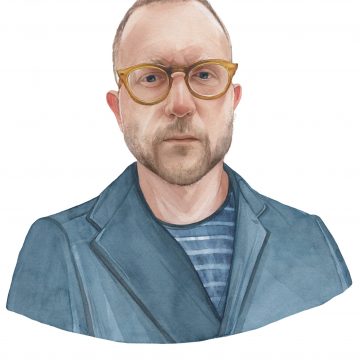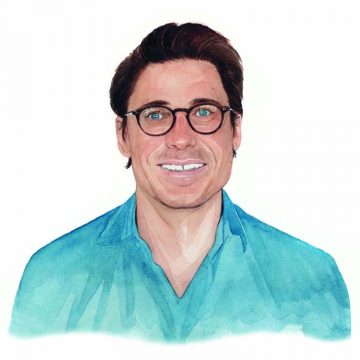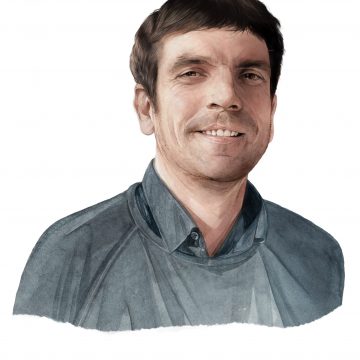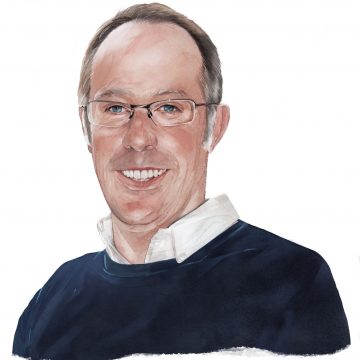‘I’m proud to see my second years swagger with confidence – they are the grizzled veterans now’
Dr Holly Krieger is the Corfield Lecturer in Pure Mathematics and a Fellow of Murray Edwards College.
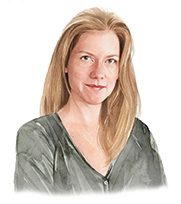
Returning to Cambridge after the holidays, I find myself wishing my neglected email inbox was an actual metal box, so that it could be opened gingerly with a large stick. The first message I open is from a journalist in my home state of Illinois, with questions from a local paper. “Holly – how is life in a foreign country? Are you viewed as exotic since you’re a woman mathematician and a Yankee?” After debating for a while the pros and cons of knocking on colleagues’ doors to ask them whether they find me exotic, I decide to answer the interview questions later and deal with the comparatively pleasant mathematical and administrative emails.
As Director of Studies for Murray Edwards’ mathematicians, I spend most of the first week of term organising supervisions and meeting with students. The first-year students have already been through a couple of long orientation meetings by the time I see them, and are wide-eyed with nervous smiles. I note the contrast with the second years, who, I’m proud to see, swagger with confidence – grizzled veterans of a now-familiar battlefield.
As students settle in and I become comfortable with my teaching and supervising routine, I spend more time on my research. This term, I’m co-organising an international meeting in dynamical systems, held in Oaxaca, Mexico. The conference brings together mathematicians in the various aspects of dynamics I work on – complex, algebraic and arithmetic. These interdisciplinary conferences are by far the most interesting to me: most of the creativity and new ideas in my mathematics are inspired by work that, at first glance, isn’t connected to my own.
After two years working alongside colleagues from other disciplines at Murray Edwards, I have realised that mathematics conferences don’t much resemble those of other fields – and not just because of our (apparently antiquated) love of blackboards. The portability of research in pure mathematics (when it comes down to it, really, we only need a pen and plenty of paper) means that we tend to use conferences as a time to get serious work done. Most evenings, you’ll find small groups of mathematicians hunched together over paper or puzzling things out on a blackboard, testing out ideas and exchanging techniques.
Oaxaca is no exception to the working-conference paradigm: I learn the details of an interesting paper recently written by two postdocs in my field, and have a series of discussions that begin a new collaboration for me. Before heading to Mexico, I felt smug about the prospect of some winter sun, but, in truth, I am so busy with work that I don’t realise until the fourth day that I’ve forgotten to bring my sunglasses. I return to Cambridge without any apparent change to my mathematician’s pallor.
After term officially ends, admissions interviews begin. Cambridge is filled with eager applicants and nervous parents. I’m involved in a YouTube channel called Numberphile, which produces mathematics videos accessible to the general public, and so I get a few emails from students who have seen my videos and are curious about studying maths at Cambridge. Weaving through the visiting masses on Trinity Street one blustery December evening, I’m stopped by what turns out to be a very enthusiastic maths applicant, telling me how much he enjoys Numberphile and how he dreams of studying here. Maybe I’ll teach him as a student here next year; maybe he’ll teach me as a colleague at a conference in a decade. I thank him and wish him luck with his interview, thinking of the future as I make my way home.
The Corfield Lectureship in Mathematics was established thanks to a gift from Nick Corfield (St John’s 1978), to encourage young women to study maths and to support the progression of female students and young researchers in their academic careers.

